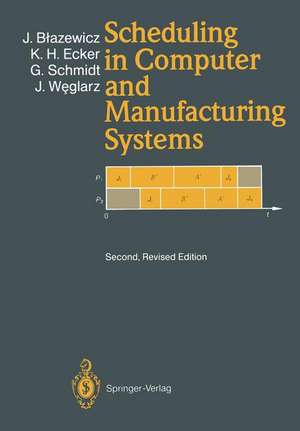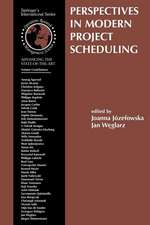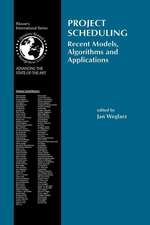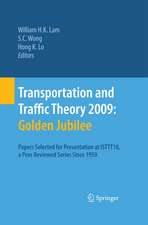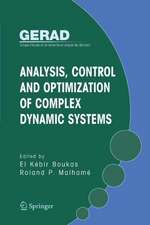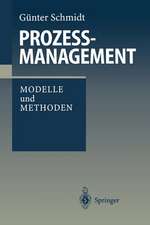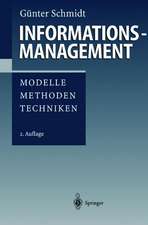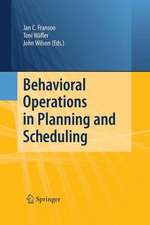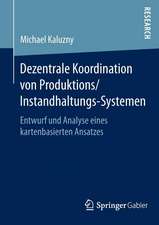Scheduling in Computer and Manufacturing Systems
Autor Jacek Blazewicz, Klaus H. Ecker, Günter Schmidt, Jan Weglarzen Limba Engleză Paperback – 13 dec 2011
Preț: 644.18 lei
Preț vechi: 757.85 lei
-15% Nou
Puncte Express: 966
Preț estimativ în valută:
123.30€ • 133.98$ • 103.64£
123.30€ • 133.98$ • 103.64£
Carte tipărită la comandă
Livrare economică 21 aprilie-05 mai
Preluare comenzi: 021 569.72.76
Specificații
ISBN-13: 9783642790362
ISBN-10: 3642790364
Pagini: 328
Ilustrații: X, 312 p.
Dimensiuni: 170 x 244 x 17 mm
Greutate: 0.52 kg
Ediția:2nd ed. 1994. Softcover reprint of the original 2nd ed. 1994
Editura: Springer Berlin, Heidelberg
Colecția Springer
Locul publicării:Berlin, Heidelberg, Germany
ISBN-10: 3642790364
Pagini: 328
Ilustrații: X, 312 p.
Dimensiuni: 170 x 244 x 17 mm
Greutate: 0.52 kg
Ediția:2nd ed. 1994. Softcover reprint of the original 2nd ed. 1994
Editura: Springer Berlin, Heidelberg
Colecția Springer
Locul publicării:Berlin, Heidelberg, Germany
Public țintă
ResearchCuprins
1 Introduction.- References.- 2 Preliminaries.- 2.1 Sets and Relations.- 2.2 Problems, Algorithms, Complexity.- 2.3 Graphs and Networks.- 2.4 Enumerative Methods.- 2.5 Heuristic and Approximation Algorithms.- References.- 3 Formulation of Scheduling Problems.- 3.1 Definition of Scheduling Problems.- 3.2 Analysis of Scheduling Problems and Algorithms.- 3.3 Motivations for Deterministic Scheduling Problems.- 3.4 Classification of Deterministic Scheduling Problems.- References.- 4 Single Processor Scheduling.- 4.1 Minimizing Schedule Length.- 4.2 Minimizing Mean Weighted Flow Time.- 4.3 Minimizing Due Date Involving Criteria.- 4.4 Minimizing Change-Over Cost.- 4.5 Other Criteria.- References.- 5 Parallel Processor Scheduling.- 5.1 Minimizing Schedule Length.- 5.2 Minimizing Mean Row Time.- 5.3 Minimizing Due Date Involving Criteria.- 5.4 Other Models.- References.- 6 Static Shop Scheduling.- 6.1 Flow Shop Scheduling.- 6.2 Open Shop Scheduling.- 6.3 Job Shop Scheduling.- References.- 7 Resource Constrained Scheduling.- 7.1 Classical Model.- 7.2 Scheduling Multiprocessor Tasks.- 7.3 Scheduling with Continuous Resources.- References.- 8 Scheduling in Flexible Manufacturing Systems.- 8.1 Introductory Remarks.- 8.2 Scheduling Flexible Flow Shops.- 8.3 Scheduling Dynamic Job Shops.- 8.4 Simultaneous Scheduling and Routing in some FMS.- References.- 9 From Theory to Practice.- 9.1 Scheduling in Computer Integrated Manufacturing.- 9.2 Solution Approaches Based on Artificial Intelligence.- 9.3 Integration of Knowledge and Algorithms.- References.
